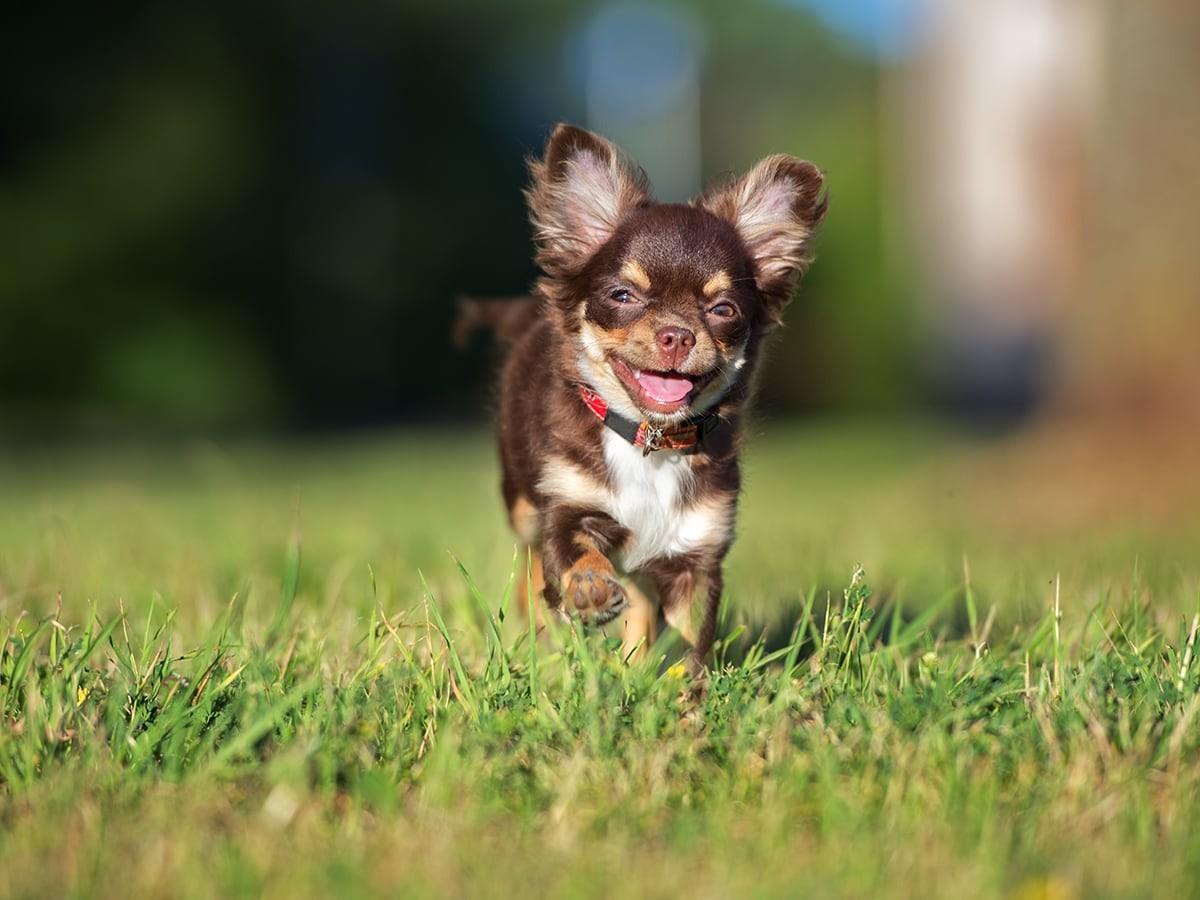Yes, dogs can very much get dizzy and lose orientation. It is usually caused by an imbalance in their inner ears, making them turn, lean, or even fall and roll.
It looks like you saw your dog having a moment of wobbling confusion as if they were drinking for a while, not realizing that they were already eight shots down and the moment they got up, everything hit at once. It may sometimes even look like they are auditioning for ‘Dancing with the Stars.’ And let’s accept that it’s funny and even cute to watch that happen sometimes.
Just like a human toddler can come out with wobbly legs, a glazed look, and a little more drool than usual after a merry-go-round ride, a dog can also look the same after a tail-chasing frenzy, a car ride with too many curves, or spinning in circles to find the perfect potty spot.
If the dizziness is due to any of these, it should go away in a few minutes and reward you with some laughs or content for your Instagram channel. However, dizziness in dogs can even happen due to vestibular disease, ear infections, neurological issues, etc. This is when it is not funny anymore and requires special attention as it could turn into something very severe and harm your dog.
What Causes Dizziness in Dogs?
You must have seen a pup chase its tail for several minutes and not fall or lose orientation. It may look like dogs are immune from dizziness, but they are not. Physical activities like intense exercise with excitement or stress, car rides, etc. can make your dog dizzy.
Apart from them, here are some medical conditions that can cause dizziness-like symptoms in your dog – (1)
Vestibular Disease: Often called “old dog syndrome,” it is a sudden and non-progressive disturbance of balance. It happens when the vestibular system, the one responsible for controlling the balance of the body, gets disturbed due to medical conditions like ear infections, perforated eardrums, hypothyroidism, trauma, tumors or possibly as a side effect of antibiotics.
Ear Infections: Infections in the inner ear can affect a dog’s balance and lead to dizziness. A dog with an ear infection will shake their head a lot and may also paw or scratch their ears constantly.
Injury – An injury to the head can also cause your dog to get dizzy. While they won’t be able to tell you that they got hurt, you’ll see heavy panting, enlarged pupils, a change in appetite, not wanting to lie down, slower reflexes, and licking or biting the affected area.
Neurological Issues: Conditions affecting the brain, such as strokes, tumors, or trauma, can impact balance. Old dogs usually get affected by these.
Hypoglycemia: Low blood sugar can cause disorientation or dizziness in smaller or diabetic dogs.
Other causes – Apart from the above factors, things like poisoning, encephalitis (swelling or inflammation of the brain), etc., can also make your dog dizzy. Sometimes your dog may act like a clown just to entertain you.
Signs of Dizziness in Dogs
Physical Signs:
Loss of balance or stumbling
Head tilting or circling
Rapid eye movement (nystagmus)
Disorientation or confusion
Behavioral Changes: Apart from some obvious visible signs, you may also see some behavioral changes in your dog, like hesitance to walk, sudden stops, or attempts to steady themselves in case they are being affected by one of the above-mentioned diseases.
Causes of Short-Term or Mild Dizziness
The diseases mentioned above usually cause long-term or prolonged dizziness that you will see frequently, along with other signs. Some things can make your dog dizzy just for a few seconds. These include -
Spinning and Play: Playful activities, like tail chasing or rapid turns, may lead to short-term dizziness, which typically resolves quickly.
Motion Sickness: Car rides or moving environments may cause dizziness or nausea, especially in younger or unaccustomed dogs.
Excessive Exercise: Overly strenuous activity or sudden stopping after running can cause disorientation, especially in hot weather.
You typically need not worry about these occurrences, but you need to know when to worry and consult a vet.
When to Worry: Persistent or Severe Dizziness
Signs of Serious Health Issues:
Persistent head tilt
Difficulty standing
Vomiting or retching
Lack of appetite
Unresponsiveness or extreme lethargy
Age-Related Concerns: Older dogs, just like older people, are usually more prone to dizziness due to vestibular disease or other age-related health issues.
Treatment Options for Dizziness in Dogs
Immediate Care at Home: In case of short-term dizziness, you can make your dog feel better by providing plenty of fresh water and rest.
Veterinary Care for Underlying Conditions: (1) (4) (3)
Vestibular Disease: Anti-nausea medications may help in case of vomiting. If your dog is facing difficulties drinking water, your vet may recommend IV fluids to hydrate the dog.
Ear Infections: The treatment will usually start with cleaning the dog’s ears to remove debris, discharge, and ear wax. The vet may then prescribe ear drops, topical medication, antibiotics, or anti-inflammatory medications.
Neurological Conditions: The treatment here will be based on diagnoses of the condition using MRI or CT scans. The vet may use anti-seizure drugs, steroids, and other medications that can help manage symptoms. Surgery may also be needed to remove tumors. Alternative treatments like hydrotherapy, laser therapy and acupuncture can help here as well.
Preventing Dizziness in Dogs
The best way to prevent dizziness in dogs is to avoid or control the triggers that can lead to it. Here are some possible solutions -
Limit Overly Stimulating Play: Avoid excessive spinning or tail-chasing games if the dog becomes dizzy frequently. Try keeping your dog engaged with physical and mental stimulations to avoid boredom and hence obsessive behaviors like tail chasing or spinning.
Gradual Acclimation to Car Rides: Get your dog accustomed to car rides with short, positive experiences. Increase the ride distance gradually. Treat your dog after a ride.
Regular Health Checkups: Regular vet visits can help catch potential issues early, especially for senior dogs or breeds prone to vestibular issues.
When to Consult a Veterinarian
If dizziness is accompanied by vomiting, loss of appetite, uncoordinated movements, or signs of pain, you must consult a vet immediately. In case you don’t see the accompanying symptoms but persistent dizziness, you should take your dog to the vet as well. Dizziness itself can be a sign of an underlying condition.
Conclusion
A quick recap - dogs can experience dizziness from something as simple as play or something as severe as a tumor. A dog owner needs to monitor signs of persistent or severe dizziness to be able to diagnose an underlying medical condition early.
And remember that a physically and mentally stimulated dog is always less prone to neurological or behavioral issues. So, spend some good time with your dog, get them interesting and challenging toys, and ensure a healthy, nutrition-rich diet for them.
How can we at Spot Pet Insurance help?
Dog Insurance can help provide financial assistance for eligible veterinary care in case of unexpected accidents, illnesses, or injuries. Our plans can help pet parents manage the eligible costs of covered veterinary care and help ensure that their pets can receive the best treatment possible. Here are some ways that Spot pet insurance plans can help:
Covers Unexpected Veterinary Costs: Spot pet insurance plans cover the eligible costs of unexpected veterinary treatments, such as emergency surgeries, X-rays, and prescription medications for covered conditions.
Customizable Plans: Choose your annual limit, reimbursement rate, and deductible from a range of options, and create the plan that will fit the needs of your pet and your budget.
Peace of Mind: With Spot pet insurance plans, pet parents can know that they can provide the best care for their pet with less worry about the cost.
To learn more about Spot Plans or to get a free quote, click here.

Creative manager by day, pet enthusiast all the time! After 19 years with my dog (hopefully he wins the award for oldest pet in the world), I enjoy spending my days brainstorming tail-wagging content, and sniffing out the latest trends in the pet world.












